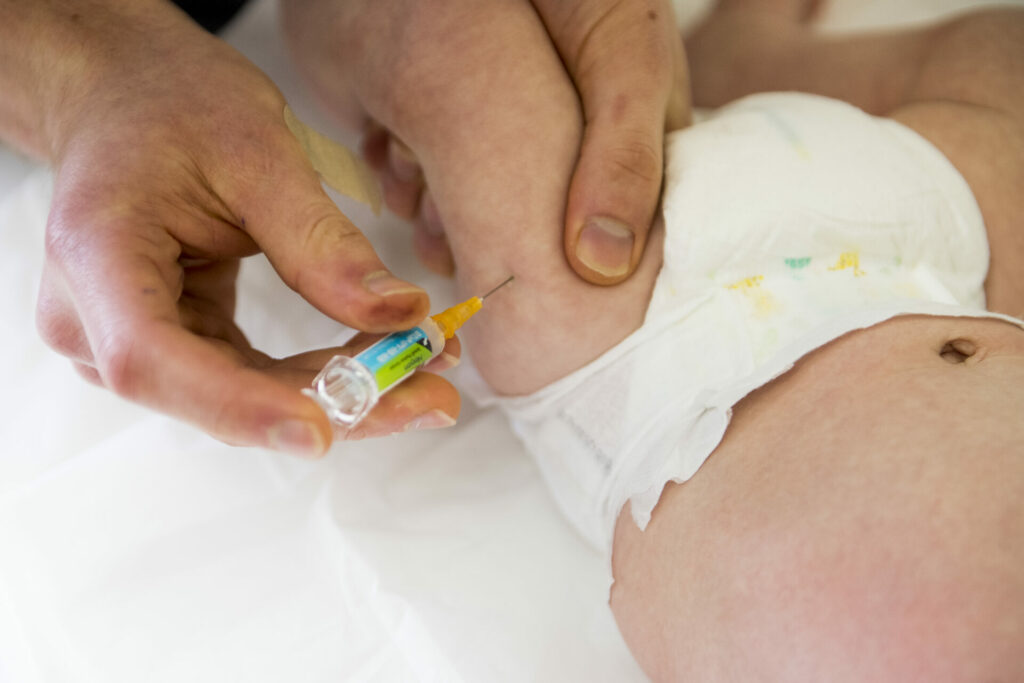About 80% of Flemish people have confidence in vaccines, the results of a study by the University of Antwerp (UAntwerpen) show. This is the first time that confidence in vaccines has been investigated for Flanders separately, rather than for Belgium as a whole.
While the majority of Flemish people consider vaccines "important, effective and safe," it is striking that younger adults (18-44 years old) have less confidence in vaccines than older generations (45 and over).
Despite an average of 57% of Flemish people believing vaccines are "important, safe and effective and correspond with their beliefs," the figure among the younger population drops to around 40%. This is markedly lower than for people over 45 years old (68%). A similar gap was observed in an overarching European and Belgian study from 2022.
"More people have a growing number of questions about vaccines and especially about their safety," said researcher Greet Hendrickx (UAntwerp). "We see this especially in the younger population than in the older population, and also among parents with young children."
Lowest score for Covid-19 vaccines
The research shows that 83% of the Flemish people surveyed consider vaccines important for children whilst 78.6% also consider vaccines important for adults.
77.8% agree that vaccines are safe, 80% think vaccines are effective, and 74% believe that vaccination is in line with their religious, personal or philosophical beliefs. Together however, "only" 57% of people believe that vaccines are "important, safe and effective and consistent with their beliefs".
Notably, confidence varied by type of vaccine: the lowest scores were for the vaccine against the human papillomavirus (HPV), with only 70% confidence, and the Covid-19 vaccines, which 70.9% considered important but only 67.5% considered safe.
"The conclusions of our research have surprised us somewhat. If we look at how many people are vaccinated, Flanders is among the top in Europe," Hendrickx said. "But if we look at confidence in vaccines, we end up in the middle bracket for Europe."

Child receiving a vaccine in Mechelen, Wednesday 24 April 2019. Credit: Belga / Jasper Jacobs
He stressed the importance of monitoring whether people who have less confidence are still getting vaccinated. "We think that the government can target information campaigns specifically at young people so that people who have questions receive a proper answer."
On Thursday, Flemish Health Minister Hilde Crevits acknowledged that there is work to be done and announced the region's new vaccination targets for 2030. "In the coming years, we want to reach and protect certain target groups in our society even better."
By 2023, Flanders wants 80% of people over 65 to be vaccinated against flu (compared to 60% now). For pneumococci (bacteria that can cause pneumonia, meningitis and blood poisoning), the target is 50%. Additionally, 9 in 10 pregnant women should be vaccinated against flu and whooping cough – a highly contagious disease that can cause severe coughing attacks, and can be very dangerous for babies.
Related News
- Belgium in the grip of second-biggest Covid-19 wave, but no new rules
- World Health Organisation raises concerns amid surge in measles cases in Europe
- Covid-19: At least 1.4 million lives saved in Europe thanks to vaccines
The whooping cough vaccine is normally administered to babies from two months old, but they can be protected before that age if the mother is vaccinated during pregnancy. The antibodies then pass to the fetus via the placenta. In 2020, the vaccination rate among pregnant women against whooping cough was already 85%, against flu it was 62.3%.
Some groups are more difficult to reach with vaccination campaigns due to complications with their social situation, language, mobility, work situation, place of residence or origin. Extra attention will be paid to an adapted vaccination policy for (international) travellers, for people with underlying conditions and for people who work in the food sector.
Crevits stated the ambition for Flanders to remain at the top of vaccination rates in Europe by ensuring "Easy access to vaccines, comprehensible and adapted communication, and strengthened cooperation with local partners and vaccinators."

